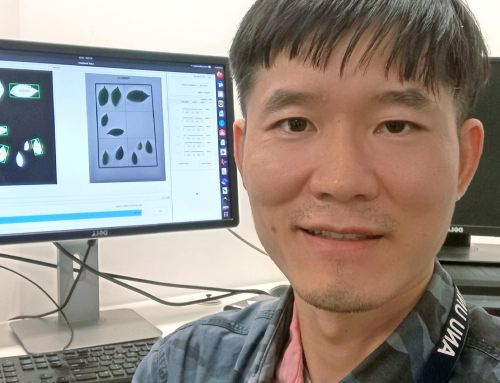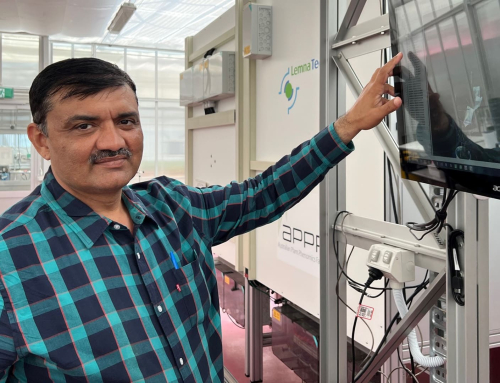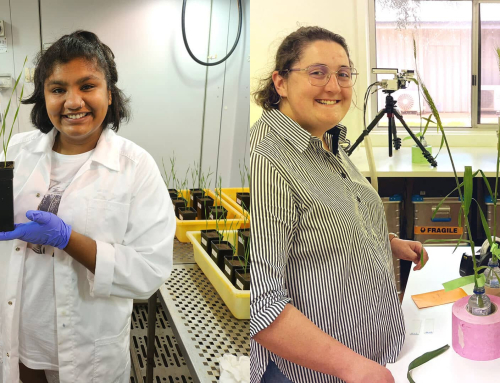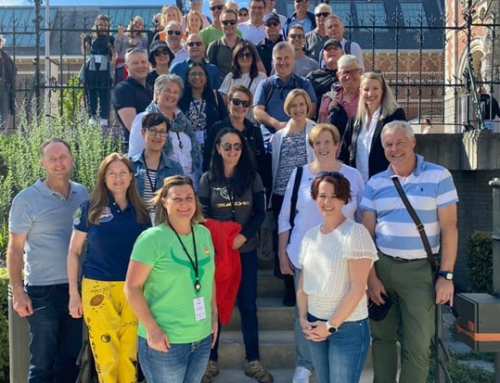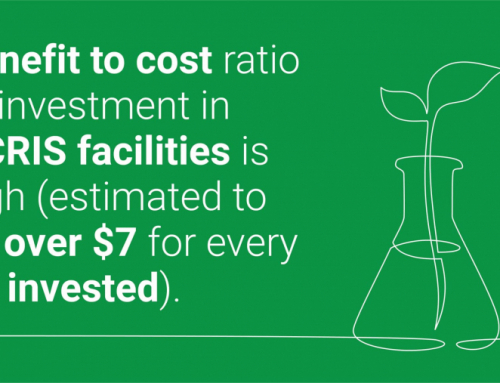The team at The Plant Accelerator® is working to offer researchers greater insights from X-ray Computed Tomography (CT) scanning of plants – and particularly in vivo roots.
Resident CT scanning specialist Dr Haoyu Lou spent two weeks at the University of Nottingham’s Hounsfield Facility in the UK at the start of March, working with their CT scanning experts Drs Craig Sturrock and Brian Atkinson. The University of Nottingham operates three X-ray CT scanners with a range of resolutions, from a whole-plant scanner to a microscopic system.
Dr Lou took along data from scans of chickpea pods that were made with APPF Postgraduate Interns Alistair Hockey and Montana Walsh Baddeley (University of Western Australia) as part of their research into chickpea fertility.
“X-ray CT scanning was perfect for seeing inside chickpea pods, allowing the researchers to assess grain fill non-destructively,” said Dr Lou.
“To help us segment and view the grains and pods, we developed new image processing protocols to analyse our through a variety of approaches – including in-house software based on Fiji Image J (open source) and Volume Graphic Studio Max (licensed).”
The Hounsfield Facility has been using X-ray CT scanners in plant and soil research for over a decade, with a particular focus on plant root architecture and understanding the rhizosphere. This has allowed them to build considerable expertise in applying X-ray CT technology in plant phenotyping.
“The Plant Accelerator® can gain a lot from the University of Nottingham’s experience,” Dr Lou said.
“We have already had some good success with our X-ray CT scanner, but we can still learn more about how best to analyse roots below ground.
“Our previous work in collaboration with the University of Nottingham and the University of Bologna in Italy to assess the EGT1 gene that controls root angle in barley is a good example of how the technology can help accelerate the development of drought tolerant crops.
“Being able to non-destructively study and segment growing roots is extremely useful for plant and crop research, as the roots are so critical to nutrient and water uptake, salinity tolerance, and more.”
Dr Lou’s research trip was supported by a UK Biotechnology and Biological Sciences Research Council (BBSRC) Australia Partnering Award: Delving down-under: using advanced phenotyping to uncover how roots grow in hard soils.
The awards facilitate transfers between Australia and the UK for early career researchers, in this instance to strengthen collaborations in root phenotyping and root-soil interaction.
Dr Lou said being able to collaborate with the team in Nottingham was a great opportunity to share knowledge and build ties to benefit future research projects.
“I’m very grateful for the opportunity provided by the BBSRC Australia Partnering Award and I would definitely encourage others to look into it.”



